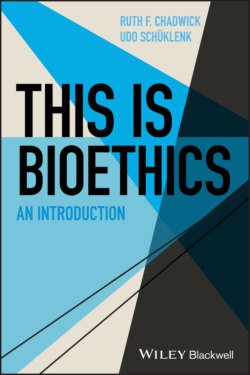Читать книгу This Is Bioethics - Udo Schüklenk, Ruth F. Chadwick - Страница 40
3.11 Treating Someone as a Means
Оглавление3.52 It is not uncommon to find the thought expressed that it is wrong to treat someone as a means, with a (possibly brief) reference to Kant. As Onora O’Neill has pointed out, what goes under the name of Kantian ethics today sometimes bears little relation to what Kant actually said (O’Neill 1991). According to Kant’s Categorical Imperative, we should never treat humanity, whether in ourselves or in others, as a means only, but always at the same time as an end in itself.
3.53 We cannot avoid treating each other as means; we do this all the time, for instance when we take public transport or use delivery services to get a pizza. The point is that we should not treat people merely as means. What is involved in treating another human being as an end is unsurprisingly a matter of debate, but involves at least respecting them as an autonomous being with goals of their own, whom it would be wrong to use in a way merely to satisfy our own ends. Difficult questions tend to arise in situations where it seems to us as agents that a person is not treating themselves with proper respect, e.g. by their choice of ways to make a living. If that is their choice, does it have to be respected in order to treat them as an end?
3.54 In bioethics it might be argued that a savior sibling (see Chapter 5) is being used as a ‘mere’ means. Is that right? The sibling may not have had a life if it were not for the need for a source of tissue. What conditions need to be satisfied in order for the sibling to be treated as an end in themselves? This will be discussed further in Chapter 5.
3.55 Two other questions arise, at least. The first is the range of application. What must be treated as an end, for Kant, is an autonomous being. This might seem to rule out from the start the possibility of applying the argument to fetuses. But a Kantian‐inspired ethic might try to make that move.
3.56 The other question is what it can mean to treat oneself as an end. Kant himself had many examples of duties towards our bodies, which seem strange to the modern more liberal minded reader, but this demonstrates that for him, one’s body should be treated with proper respect, as it is not ‘mine’ it is ‘me’. This type of consideration may be appealed to in arguments about prostitution, as well as in discussions about selling parts of the body for profit.
3.57 The important take‐away from this is that we must be careful about attempts to argue that something is wrong because it involves treating another human being as a means, without being clear about exactly what is involved, and whether what is at issue is treating someone as a ‘mere’ means.
